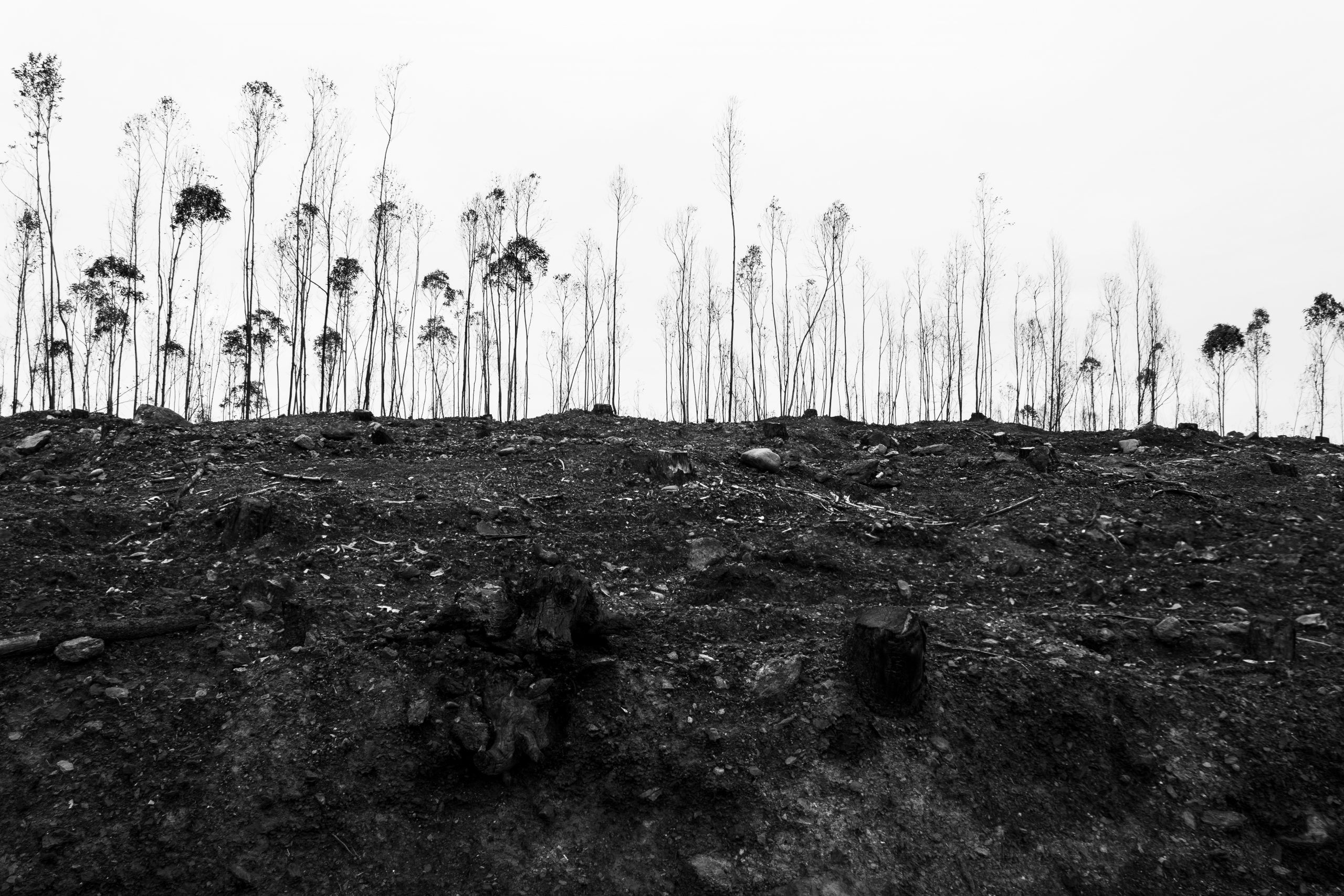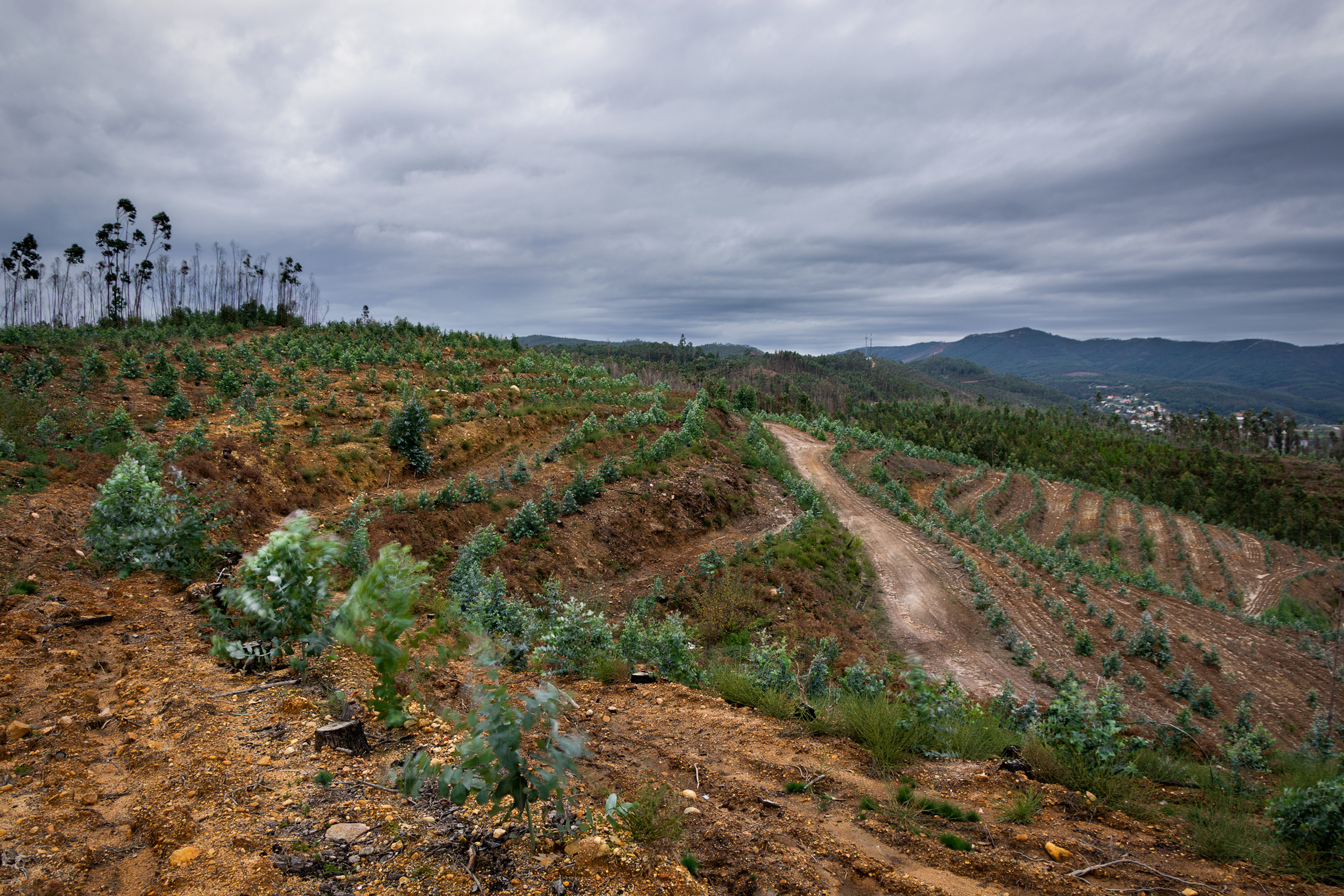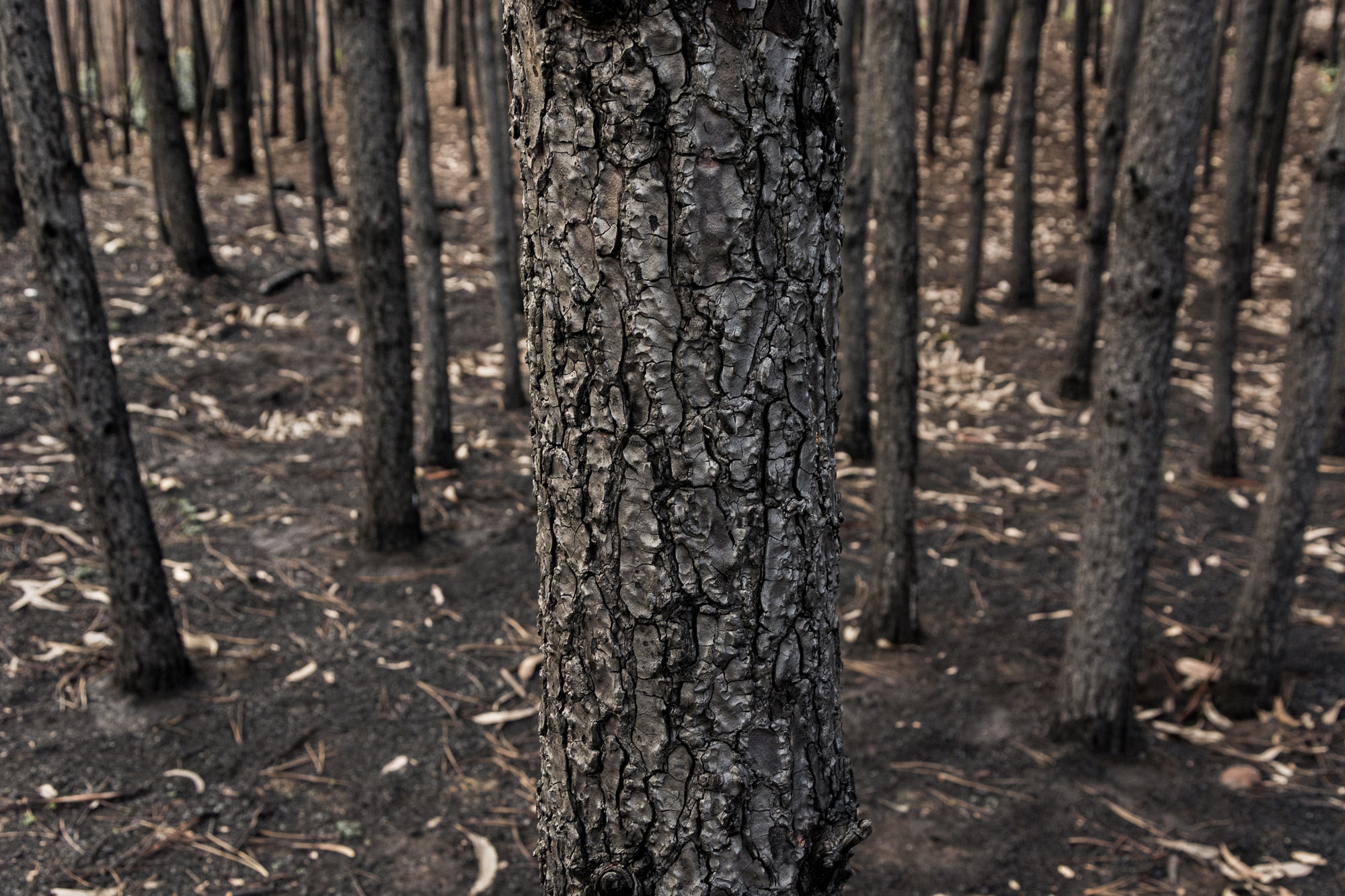Every year Portugal is devoured by thousands of wildfires. In average, between 2007 and 2016, 3662 fires occurred each year, corresponding to 84671 ha of burned area. In 2017 alone more than 440 000 ha of forest, shrubland and villages were destroyed by fires, which corresponds to 4 times more than what was registered in the last 10 years (an increase of 428%). In just one single day (October 15th) more than 500 fires were recorded! As a result of all these wildfires, more than 100 people lost their lives and much more got injured or lost their houses and their jobs.

2017 was a tragic year, not only from the social point of view, but also from the environmental point of view. Unfortunately, the media rarely explore the problems that wildfires entail to the survival and quality of ecosystems.
Most of the wildfires are due to human interference (about 98%), whether voluntary or negligent, being the second more significant. However, there is another factor to be taken into consideration, the absence of an effective forest management plan. Since the beginning of the 20th century the original forest of Portugal has been replaced by monocultures of eucalyptus (Eucalyptus globulus), native to Australia, which is essentially used by the paper industry. Nowadays, the eucalyptus represents 26% of the total area of forest, being the tree species that occupies the largest area.

This species is responsible for serious ecological problems, as it does not provide suitable habitat for most animal and plant species. Eucalyptus trees are responsible for decreasing the levels of groundwater, because their long roots absorb large quantities of water. They also create a layer of organic matter (leaves) on the ground that is not degraded by the microorganisms present in Portuguese soils, forming an impermeable layer to the water. This way, the water runs down to lower areas, causing major floods. In addition to the eucalyptus forests being extremely dry, the leaves of these plants are rich in flammable volatile oils, which fuel large forest fires. After being burned and/or after being cut down, these trees regenerate and keep producing biomass that will feed new fires. The growth rate of these plants is so fast that any other native species cannot keep up with. The eucalyptus forests are the ideal environment for the propagation of fires, which often end up reaching natural, semi-natural and rural areas, where the levels of biodiversity are notoriously higher. Due to the wildfires, thousands of fauna and flora populations are devastated and the individuals that survive end up dying due to lack of food. These places once full of life, are then dominated by invasive species, that stifle the growth of the original plants. This happens every year!


Beyond eucalyptus, Portugal has also invested on maritime pines (Pinus pinaster), and nowadays they occupy 23% of the total forest area. Despite being native, this species has never existed in such high concentrations and it is quite flammable as well, although not as much as the eucalyptus. In total, almost 50% of the forest is represented by only two species, responsible for catastrophic environmental impacts.

In my opinion, when compared with all the losses and with all the logistics in firefighting, the solutions are simple. From the environmental point of view, we need a reconversion of the Portuguese forest, that is, a large part of the area with eucalyptus and maritime pines should be replaced by native species. It would also be crucial to manage the areas with those species that would remain for logging. Unfortunately, no significant changes are planned, at least that have positive effects on biodiversity. Wildfires are one of the main threats to the Portuguese ecosystems and, therefore, are one of the major environmental problems we face. I dare to say that it is the biggest environmental crime ever seen in Portugal. Nevertheless, considering the power of the paper industry in Portugal, little or nothing has been done by the government to stop or at least mitigate this problem. On the contrary, in 2017 the Portuguese government created a program with 9 million euros available for the promotion of eucalyptus plantations, while there are no available funds for the plantation of native species.

Thank you for reading this article. If you have any questions or suggestions feel free to contact me.
